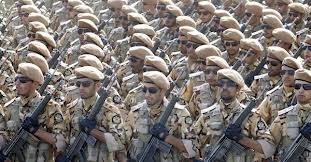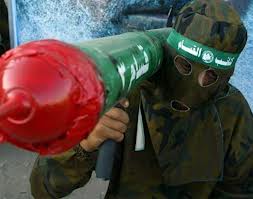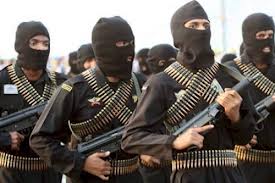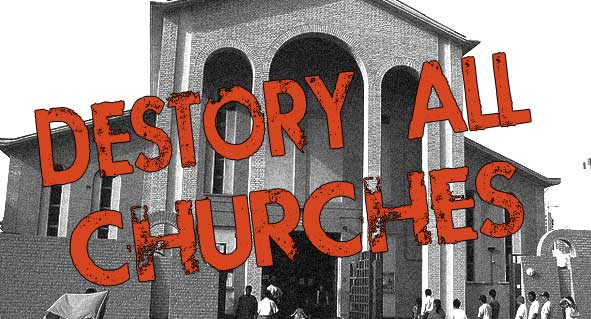Obama Doesn’t Have Four More Years To Combat Iranian and Other Forms of Inflammatory extremism in the Middle East
Four more years! Four more years! This was the chant the Obama faithful shouted as their man won victory in the Presidential election. However, as the celebrations continued long into the night, many analysts were wondering what impact four more years would bring to the deteriorating situation in the Middle East. The answer was not long in coming.
Unfolding events in Israel, Gaza, Syria and Egypt represent a most dangerous escalation in terrifying violence. And, despite fragile ceasefires, no-one really knows where it might all end.
One thing which is abundantly clear is that in this horrific situation the hand may be seen of two of the region’s super powers – the Shia regime in Iran and the Sunni regime in Saudi Arabia. Militias which act as their proxies from Syria to Gaza, and from Somalia to Nigeria – have been responsible for the bloodbath which is claiming so many innocent lives.
Before embracing groups which describe themselves as the “opposition” to brutal regimes it is crucial to know on whose behalf they are acting and what is their agenda. In Syria, for instance, Iran has been supporting the Assad regime but the Opposition brings together some very dubious groups which have their own blood curdling agenda. Some of these groups look to Saudi Arabia – one of whose clerics, Grand Mufti Sheikh Abdul Aziz bin Abdullah Al-Sheikh, – illustrated the intolerance of that country by calling for every Church in the region to be razed to the ground.
But it is Iran’s role which is the most disturbing. This is a country which has been developing its own nuclear capability; whose leaders have said they would like to see the State of Israel annihilated; and which over the past year has executed at least 650 of its own people.
In his second term of office President Obama needs to be much clearer about the threat to world peace which is posed by Iran and by Saudi Arabia – and he should also be much more vociferous in speaking out about the treatment of minorities such as the Copts, the Druze, the Alawites, the Chaldeans and others – and in denouncing remarks like those of the Saudi Grand Mufti.
During his first term the Obama administration was weak in its support for uprisings inside Iran and has throughout the four years been walking on egg shells with the Iranian regime over its nuclear ambitions. It has been timid in championing the cause of pluralism and democracy and the rights of minorities.
The President came to power with the mantra, “To those who cling to power through corruption and deceit and the silencing of dissent, know that you are on the wrong side of history; but that we will extend a hand if you are willing to unclench your fist.” Seen to be a message to Tehran’s leadership at the time, the worry is that the administration simply extended the hand of friendship to Iran and received nothing in return.
Worse still, Iran’s Vice President, Mohamad Reza Rahimi, was quoted by the Iranian regime’s news agency IRNA as saying, “We will break the grasping hands of Obama and we will be successful in bypassing the sanctions.”
Four years on, Tehran continues to lead the US and the international community down a merry path while it systematically develops a nuclear weapon.
There are, however, a few harbingers that suggest that not everything has been going the regime’s way. It has been shaken by international sanctions which are slowing finance to Tehran’s leadership. Much of Iran’s economy is controlled by the Revolutionary Guards, the regime’s staunchest backers, and they are beginning to be hit hard by these sanctions.
While the regime has been squeezed by these sanctions it is clear that although they may slow its nuclear ambitions they will not prevent them. The regime has in fact made significant nuclear advances, not least in the critical area of enriching uranium to the required level.
So President Obama needs to be much more realistic about Iran and recognise that they will always come to the negotiating table, offer nothing, and walk away – having bought themselves further time to advance its nuclear weapons programme. The regime is edging closer to a nuclear weapon; and we must be wary lest events throughout the region are used by Iran as a smoke screen behind which something far more devastating is being orchestrated.
Iran’s Resistance Movement represents the best hope for change inside that country – not military intervention. It’s just a pity that we have left it until the eleventh hour to realise that there are genuine opposition groups throughout the region which believe in plural, secular and democratic states – and to which we have given precious little help or encouragement as well funded militias and groups, committed to narrow ideologies, have been quarter-mastered by Iran and Saudi Arabia.
For the longer term we must give greater encouragement to all those moderate forces in the region which want to pursue dialogue and co-existence. The Church has a major role to play in encouraging such a focus – and is already doing so.
Last month the Cardinal Archbishop of Milan, Cardinal Angelo Scola, came to Westminster to talk about his own excellent initiative, the Oasis Foundation ( http://www.oasiscenter.eu/en/about-us-en). Its goal is to promote mutual knowledge and understanding between Christians and Muslims, with special focus on the plight of Christian minorities in predominantly Mulsim countries. Oasis has been devoting a great deal of reflection on the Arab revolutions and their possible outcomes. But through that study the Cardinal has concluded that the transition which is occurring on the southern shore of the Mediterranean is challenging also the historical fabric of the Western Societies.
These are the big and urgent questions of our times – and unless we find the answers, and quickly, then the traumatic events now shaking the Middle East will deepen and spread – and we don’t have the luxury of four more years to get on with developing new relationships and long term solutions.





